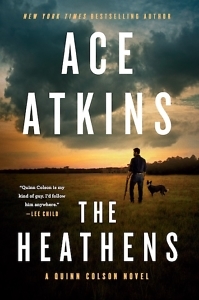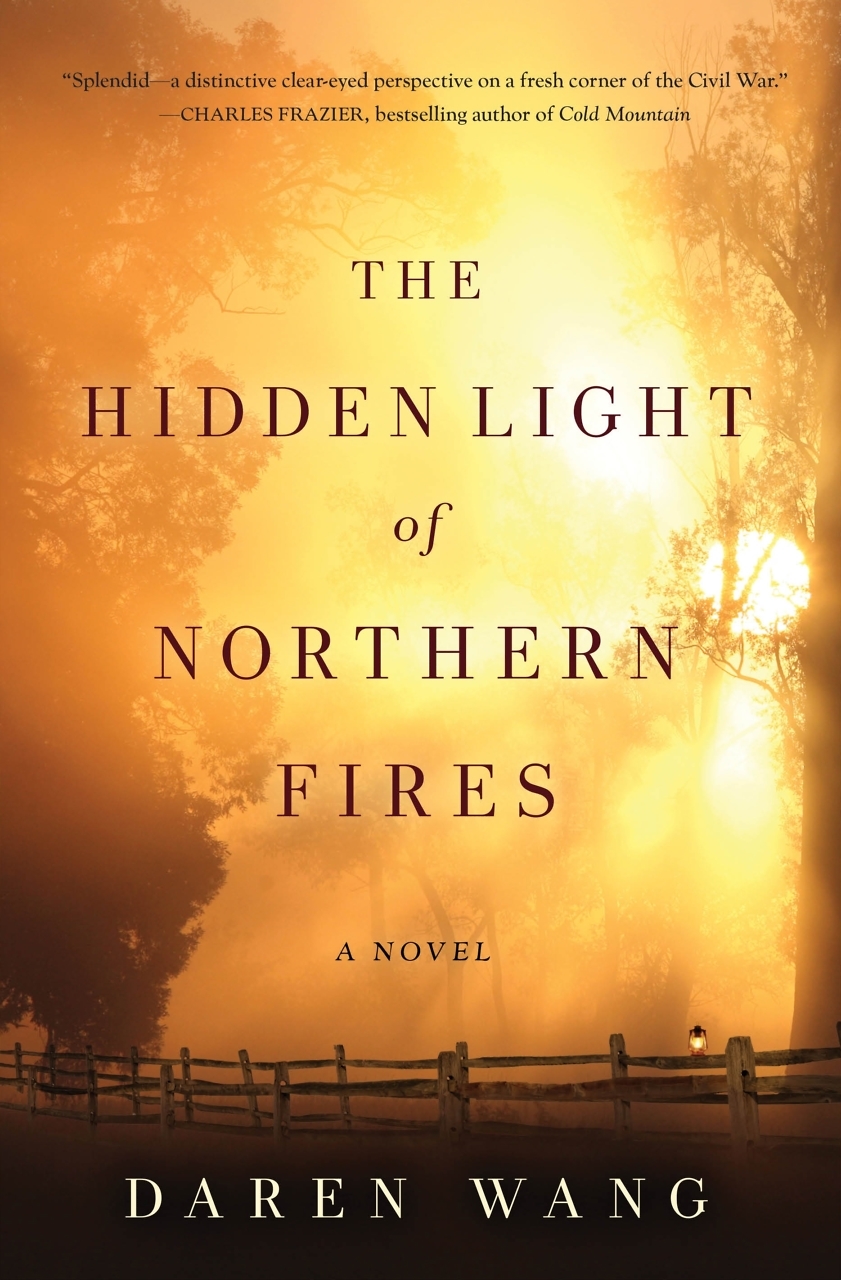Bad Influencers
Ace Atkins’ Mississippi sheriff chases a teenage TikTok sensation across the South
In 2011’s The Ranger, Ace Atkins introduced Sheriff Quinn Colson, a cigar-smoking war hero who returns home to fictional Tibbehah County, Mississippi, to find a den of corruption that needs cleaning. He’s still at the job a decade later in The Heathens, the 11th novel in the series. The criminal kingpin Johnny Stagg returns after an absence from more recent books, having allegedly found religion and gone straight. He’s now busily turning his former strip joint into a family-friendly “frontier town.” Stagg is also a silent partner in a liquor store fronted by ne’er-do-well businessman Chester Pratt, who is dating a woman named Gina Boyd, whose 17-year-old daughter TJ becomes the novel’s focus.

The book opens with Gina — a hard-drinking partier with perhaps the worst reputation in a county full of bad ones — already murdered, her mutilated body stuffed in a barrel and tossed in a ditch. The chief suspect, TJ, is on the run with her nine-year-old brother, her car-stealing boyfriend, and a wannabe social media star they pick up after breaking into an Arkansas lake house. In flashbacks, we learn of Colson’s investigation into the murder and his growing suspicion that TJ, while certainly a bad seed, might not be a murderer. This complex character and her cross-country dash through the book’s 400 pages were inspired by a real teenage murder suspect that Atkins covered as a reporter for the Tampa Tribune in 1998: Valessa Robinson, a Florida teen eventually caught in Texas and ultimately convicted of murder along with her criminal boyfriend, Adam “Rattlesnake” Davis.
“I wish that every novelist could have the benefit of being in a newsroom at some point, of writing about real characters, real people,” Atkins said in a recent interview with the Tampa Bay Times. In the book’s promotional material, he asks the question that drove him to use the story in fiction: “What if these kids had been framed and were innocent?”
While this idea drives the plot, his commitment to character and setting keep the book readable. The average length of each Quinn Colson installment has grown over the years as Atkins weaves ever more intricate plotlines, but his journalistic grounding raises his crime fiction above competitors. Like Michael Connelly, creator of the popular Bosch book and television series, Atkins spent years working as an investigative crime reporter, a job that Connelly once described to Chapter 16 as putting him “in close proximity to crime scenes and detectives and victims and just about everything I write about now.”
 In the same way Connelly brings journalistic detail to his portrayal of Los Angeles, Atkins fills Tibbehah County with Southerners who may be poor and uneducated, but never devolve into cliché. Atkins imbues them all with what the reporter and novelist Tom Wolfe, in a 1972 essay for Esquire, called status life, or “the entire pattern of behavior and possessions through which people express their position in the world.” Like Faulkner in Yoknapatawpha, Atkins does this with both people and the landscape itself. Consider a tobacco-chewing sheriff, pausing on a lonely highway in the next county over from Tibbehah:
In the same way Connelly brings journalistic detail to his portrayal of Los Angeles, Atkins fills Tibbehah County with Southerners who may be poor and uneducated, but never devolve into cliché. Atkins imbues them all with what the reporter and novelist Tom Wolfe, in a 1972 essay for Esquire, called status life, or “the entire pattern of behavior and possessions through which people express their position in the world.” Like Faulkner in Yoknapatawpha, Atkins does this with both people and the landscape itself. Consider a tobacco-chewing sheriff, pausing on a lonely highway in the next county over from Tibbehah:
The rain fell soft as he got out and stretched, turning his bad back this way and that, and stepped over a drainage ditch to take a leak into a kudzu-filled ravine. He looked down to where folks had come to toss out old TVs, refrigerators, car engines, and buckets of motor oil. This was one of the main unofficial county dumps in Parsham and illegal as hell. Lovemaiden wasn’t into hugging trees, but he sure as hell didn’t like his county to look like a postcard from Tijuana.
Of necessity, such realism produces heaping portions of profanity. Cussing appears in other Mississippi fiction, of course: Novelist John Pritchard may have created the most comically foul-mouthed narrator of all time in his recurring protagonist Junior Ray Loveblood. Jamie Kornegay’s Soil is populated by redneck conspiracy theorists who seldom talk nice. Even William Faulkner’s masterpiece As I Lay Dying has been banned from high schools for its excessive profanity. Some Mississippi characters only become eloquent when releasing invective.
Atkins deftly tailors dialogue to character. His hero Quinn is a taciturn family man, part Sam Spade and part Gary Cooper, loath to utter a harsh word in polite company. But Quinn’s friend and former deputy, U.S. Marshal Lillie Virgil, could put a drill sergeant to shame with her wildly creative put-downs of criminals and colleagues alike, all of them sexually offensive, none suitable for tender ears. The runaway TJ speaks in the more perfunctory clipped profanity of Faulkner’s Snopes, harsh and to the point.
In updating a 1998 Bonnie-and-Clyde tale for 2021, Atkins uses TJ’s good looks and direct speech to make her a social media star. Although she has barely had access to cell phones, TJ falls under the sway of Chastity, a wealthy teen out to gain some fame and also punish her father, the owner of a large but failing Arkansas car dealership (more status life). Of course, each new post becomes a clue not only for police, but for deadlier forces who don’t want TJ talking — ever. The dark actions of such characters within a ravaged Southern landscape draw readers into a wild ride, one they won’t soon forget.

Michael Ray Taylor is the author of Hidden Nature: Wild Southern Caves. He chairs the communication and theatre arts department at Henderson State University in Arkadelphia, Arkansas.


